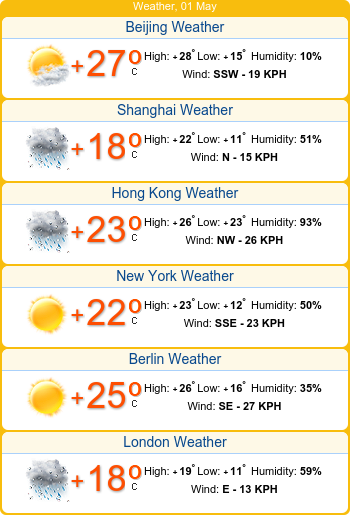What China gains as Ukraine peacemaker
After more than a year of no direct communication, the Chinese president, Xi Jinping, and Ukrainian president, Volodymyr Zelensky, had a phone conversation on April 26, 2023. According to the Chinese record of the call, “the two sides exchanged views on China-Ukraine relations and the Ukraine crisis”, but globally it was seen as an attempt by Beijing to step in as peacemaker. Meanwhile, Zelensky tweeted that he “had a long and meaningful phone call” with Xi, and later expanded on his Telegram channel saying that particular attention was “paid to the ways of possible cooperation to establish a just and sustainable peace for Ukraine”. The most concrete outcome of the call is Xi’s confirmation that China will appoint a special representative on Eurasian affairs to Ukraine “to have in-depth communication with all parties on the political settlement of the Ukraine crisis.” If nothing else, this signals that China is getting serious with its mediation efforts and judges the time to be right for this, not least because of increasing tensions in the Western alliance and doubts about the success of a Ukrainian counteroffensive. China’s move is another indication of a changing international order that Beijing is keen, and increasingly able, to shape. What is immediately at stake for China is its relationship with the EU. For the EU’s member states, the war in Ukraine, including a possible further escalation, is of much more acute security concern than it is for China. European officials have repeatedly urged Beijing to use its influence over Moscow to “bring Russia to its senses”, as French President Emmanuel Macron put it on his recent visit to China. Other senior EU officials, from European Commission President Ursula von der Leyen to European Council President Charles Michel and the EU’s high representative for foreign affairs Josep Borrell have similarly left no doubt that China’s stance on the war in Ukraine will shape the future of EU-China relations. Given how important the EU and China are for each other economically, both sides have an interest in a stable and constructive relationship. China-EU relations are, of course, part of a bigger picture of relations between China and the West. Yet even here, there are some signs of a possible opening. US treasury secretary Jane Yellen acknowledged that “negotiating the contours of engagement between great powers is difficult” but also noted that Beijing and Washington “can find a way forward if China is also willing to play its part.” The Xi-Zelensky phone call fits into a careful and fragile choreography of moves that might gradually see a more effective management of the war in Ukraine that would, initially, prevent further escalation and eventually pave the way toward a settlement. While it would not resolve all of the contentious issues in China-West relations, it would remove one particularly problematic issue from the list of immediate concerns. President Xi is now appointing a special envoy to Ukraine as part of moves from China to push forward peace talks. Photo: Reuters / Alamy via The Conversation At the same time, China needs Russia as leverage in its great power competition with the West, and Xi is unlikely to abandon his partnership with Putin. But China also needs a Russia that is more controllable, and this means China needs an end to the war in Ukraine, which still has the potential to escalate further. By reining in Russia over Ukraine, Xi can firmly establish China as an indispensable guarantor of sustainable security and stability in Europe. Risks for the West If the Chinese initiative is given the benefit of the doubt in Brussels and Washington and gains traction in Kyiv and Moscow, it gives Beijing a major opportunity to begin shaping a new Eurasian security order. While the West may be able and willing to contain the Kremlin militarily and isolate Russia economically, Xi will have a major role to play in managing Putin politically. In other words, Beijing’s calculation may well be that for Europe to regain a measure of stability and security, China’s cooperation will be essential. This does not diminish the importance of the transatlantic security relationship embodied by NATO, but it would mean an acknowledgment of the fundamentally changed dynamics of the European order and the far more critical role of China within it. Bringing about a negotiated end to the war in Ukraine may take some time and require more than just Beijing’s mediation. But even an end to the fighting in Ukraine in the form of a stable ceasefire could benefit China. Such an intermediate outcome would make it more likely, for example, that the Black Sea deal, which allows Ukraine to export its grain, would be extended again, easing the global food crisis. A Black Sea Grain Initiative shipment at sea. Image: UNCTAD This would consolidate China’s influence and leadership in the developing world, further ceme

After more than a year of no direct communication, the Chinese president, Xi Jinping, and Ukrainian president, Volodymyr Zelensky, had a phone conversation on April 26, 2023.
According to the Chinese record of the call, “the two sides exchanged views on China-Ukraine relations and the Ukraine crisis”, but globally it was seen as an attempt by Beijing to step in as peacemaker.
Meanwhile, Zelensky tweeted that he “had a long and meaningful phone call” with Xi, and later expanded on his Telegram channel saying that particular attention was “paid to the ways of possible cooperation to establish a just and sustainable peace for Ukraine”.
The most concrete outcome of the call is Xi’s confirmation that China will appoint a special representative on Eurasian affairs to Ukraine “to have in-depth communication with all parties on the political settlement of the Ukraine crisis.”
If nothing else, this signals that China is getting serious with its mediation efforts and judges the time to be right for this, not least because of increasing tensions in the Western alliance and doubts about the success of a Ukrainian counteroffensive.
China’s move is another indication of a changing international order that Beijing is keen, and increasingly able, to shape. What is immediately at stake for China is its relationship with the EU. For the EU’s member states, the war in Ukraine, including a possible further escalation, is of much more acute security concern than it is for China.
European officials have repeatedly urged Beijing to use its influence over Moscow to “bring Russia to its senses”, as French President Emmanuel Macron put it on his recent visit to China.
Other senior EU officials, from European Commission President Ursula von der Leyen to European Council President Charles Michel and the EU’s high representative for foreign affairs Josep Borrell have similarly left no doubt that China’s stance on the war in Ukraine will shape the future of EU-China relations. Given how important the EU and China are for each other economically, both sides have an interest in a stable and constructive relationship.
China-EU relations are, of course, part of a bigger picture of relations between China and the West. Yet even here, there are some signs of a possible opening. US treasury secretary Jane Yellen acknowledged that “negotiating the contours of engagement between great powers is difficult” but also noted that Beijing and Washington “can find a way forward if China is also willing to play its part.”
The Xi-Zelensky phone call fits into a careful and fragile choreography of moves that might gradually see a more effective management of the war in Ukraine that would, initially, prevent further escalation and eventually pave the way toward a settlement.
While it would not resolve all of the contentious issues in China-West relations, it would remove one particularly problematic issue from the list of immediate concerns.

At the same time, China needs Russia as leverage in its great power competition with the West, and Xi is unlikely to abandon his partnership with Putin. But China also needs a Russia that is more controllable, and this means China needs an end to the war in Ukraine, which still has the potential to escalate further.
By reining in Russia over Ukraine, Xi can firmly establish China as an indispensable guarantor of sustainable security and stability in Europe.
Risks for the West
If the Chinese initiative is given the benefit of the doubt in Brussels and Washington and gains traction in Kyiv and Moscow, it gives Beijing a major opportunity to begin shaping a new Eurasian security order. While the West may be able and willing to contain the Kremlin militarily and isolate Russia economically, Xi will have a major role to play in managing Putin politically.
In other words, Beijing’s calculation may well be that for Europe to regain a measure of stability and security, China’s cooperation will be essential. This does not diminish the importance of the transatlantic security relationship embodied by NATO, but it would mean an acknowledgment of the fundamentally changed dynamics of the European order and the far more critical role of China within it.
Bringing about a negotiated end to the war in Ukraine may take some time and require more than just Beijing’s mediation. But even an end to the fighting in Ukraine in the form of a stable ceasefire could benefit China. Such an intermediate outcome would make it more likely, for example, that the Black Sea deal, which allows Ukraine to export its grain, would be extended again, easing the global food crisis.

This would consolidate China’s influence and leadership in the developing world, further cementing its status as an important power broker in the new bipolar order sketched out in a 2019 white paper China and the World in the New Era.
Building a new international order
While China’s more open engagement in mediation efforts to end the war in Ukraine could significantly advance Beijing’s vision of a new international order, it is not without risks for Xi.
As Zelensky noted in his call with Xi, the “territorial integrity of Ukraine must be restored within the 1991 borders.” Russia’s predictable reaction, delivered by foreign ministry spokeswoman Maria Zakharova, was to accuse Ukraine of linking its willingness to negotiate “with ultimatums containing … unrealistic demands.”
Ultimately, the question for Beijing, which has consistently affirmed its support for the international norms of sovereignty and territorial integrity, becomes whether it can find a way to square the circle between Moscow’s internationally isolated insistence that its illegal war and land grab in Ukraine be recognized and Kiev’s demand that its borders not be subject to change by force.
This is a fundamental question for European and global order, and since the 1975 Helsinki Final Act the inviolability of borders was the foundational principle of European security.
Whatever the fate of China’s mediation efforts in the war are, they will be a major test of the skill and leverage that Chinese diplomats have and they will be an indication of how China intends to play its future role in a re-imagined Eurasia.
Stefan Wolff is Professor of International Security, University of Birmingham and Tetyana Malyarenko is Professor of International Relations, Jean Monnet Professor of European Security, National University Odesa Law Academy
This article is republished from The Conversation under a Creative Commons license. Read the original article.












